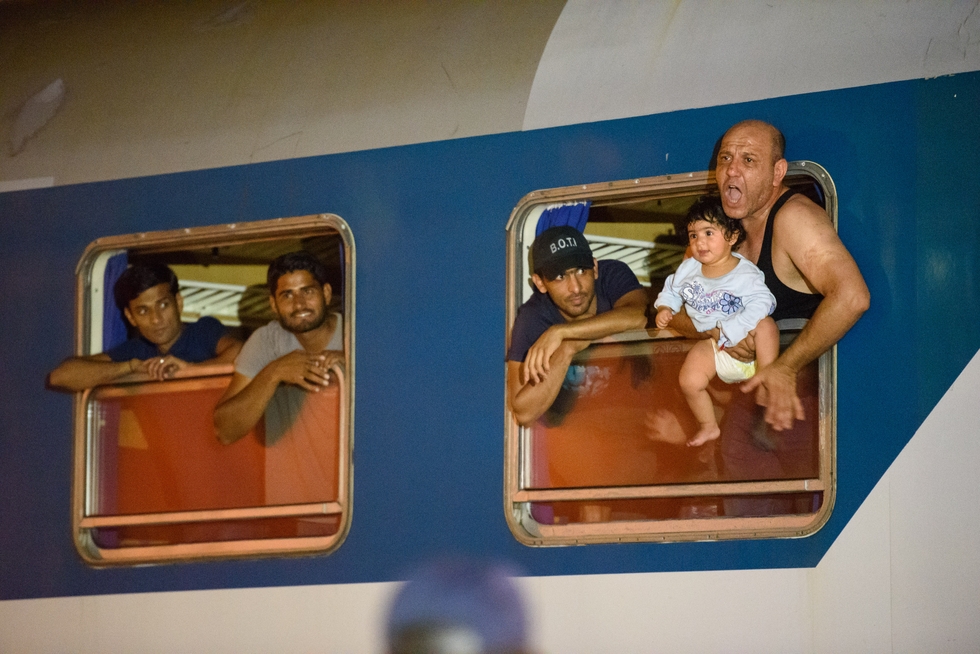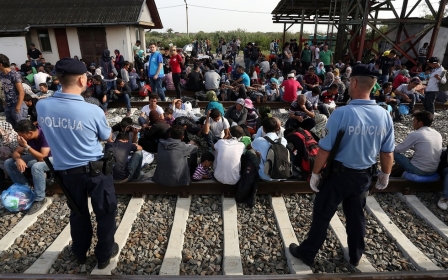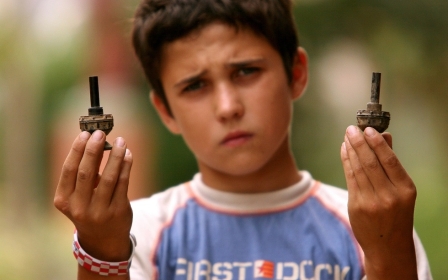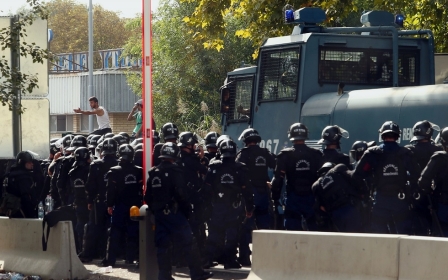Croatia closes border crossings with Serbia over refugees

Croatia on Thursday closed seven of the country's eight border crossings with Serbia "until further notice" following a massive influx of migrants and refugees, the Interior Ministry said.
"Traffic is banned on the border crossings of Tovarnik, Ilok, Ilok 2, Principovac, Principovac 2, Batina and Erdut," the ministry said in a statement.
More than 11,000 migrants have entered Croatia from Serbia since early Wednesday, the ministry added.
The migrants began heading for Croatia after Hungary sealed its border with Serbia earlier this week, cutting off a key route into the EU used this year by more than 200,000 migrants, many of them fleeing violence in the Middle East and Afghanistan.
Croatia had said it would let people pass through freely on their way to other EU countries - but Prime Minister Zoran Milanovic warned his country's resources for dealing with the influx were "limited".
Piling on the pressure, Slovenia announced late Thursday that it had stopped a train from Croatia carrying migrants, saying some 150 passengers would be returned to Zagreb because they did not have the necessary documents for onward travel.
Slovenia later suspended all train traffic between Slovenia and Croatia until Friday morning, Slovenian news agency STA reported.
Earlier on Thursday, Hungary said its efforts to close its borders to refugees had been successful, given that migrants had been choosing to pass through Croatia instead, the Telegraph reported.
The "assertive, uncompromising defence of the border has visibly held back human trafficking and forces them to change direction," said Janos Lazar, chief of staff for right-wing Hungarian President Viktor Orban. "That was the aim of the entire action."
Emergency summit
In Brussels, EU president Donald Tusk said all 28 leaders of the bloc would next Wednesday hold an emergency summit on the continent's worst migration crisis since World War II.
The bloc is bitterly split over how to fairly distribute the migrants across the EU, and there are fears that Europe's vaunted Schengen agreement, which allows borderless travel between member states, could be in jeopardy.
Germany, Austria and Slovakia have all reimposed identity checks on parts of their borders, and Poland and the Netherlands are considering whether to follow suit.
Under a draft law seen by AFP on Thursday, Germany's interior minister Thomas de Maiziere is seeking to toughen asylum laws by sending migrants back to the first European Union country they reached and by reducing benefits.
If passed, the law would represent a major reversal on Germany's easing of asylum laws for Syrians, a factor contributing to the massive influx that has left Germany expecting up to a million asylum seekers this year.
Meanwhile, in a sign of growing pressure on the EU's external borders, Bulgaria began deploying 1,000 troops to the Turkish frontier where several hundred people, mostly Syrians, spent a third day stuck near a border city.
French President Francois Hollande said late Thursday that he would use next week's emergency EU summit to ask Turkey to keep Syrian refugees on its soil until the war ends.
New MEE newsletter: Jerusalem Dispatch
Sign up to get the latest insights and analysis on Israel-Palestine, alongside Turkey Unpacked and other MEE newsletters
Middle East Eye delivers independent and unrivalled coverage and analysis of the Middle East, North Africa and beyond. To learn more about republishing this content and the associated fees, please fill out this form. More about MEE can be found here.




